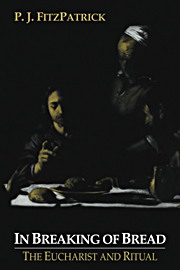2 - Against transignification
Published online by Cambridge University Press: 05 November 2009
Summary
PRESENT DISCONTENTS
The place of Aquinas in theological speculation has been a special one. He is part of an intellectual tradition that has been a distinguishing mark of the Church of Rome; he has been regarded as the most eminent representative of that tradition; phraseology like his can be seen in the formulation of eucharistic belief at the Council of Trent; and generations of clergy have been, directly or indirectly, instructed in terms of his thoughts, not just in eucharistic matters but in the whole range of Catholic belief. Devoting the first chapter to what Aquinas wrote within the scholastic tradition about the eucharistic presence was no more than justice.
Still more needs to be said about Aquinas, but the present chapter must with equal justice turn to other themes. The many changes in the Roman Church over the last quarter of a century have included change in the place there of scholasticism and of Aquinas himself. The debates at the Second Vatican Council, the growth in discussions with Christians of other traditions, and above all the changes in public worship, are only some of the things that have both encouraged and been encouraged by newer thoughts about the Eucharist. In the previous chapter I expressed my dissent from the older tradition of eucharistic speculation. I have a good deal more still to say of that tradition, because I regard its implications as being more than eucharistic. But now I want to examine the newer style of speculation, because I think that here too the lessons to be learned go beyond the particular theme with which the writings are concerned.
- Type
- Chapter
- Information
- In Breaking of Bread , pp. 49 - 107Publisher: Cambridge University PressPrint publication year: 1993

